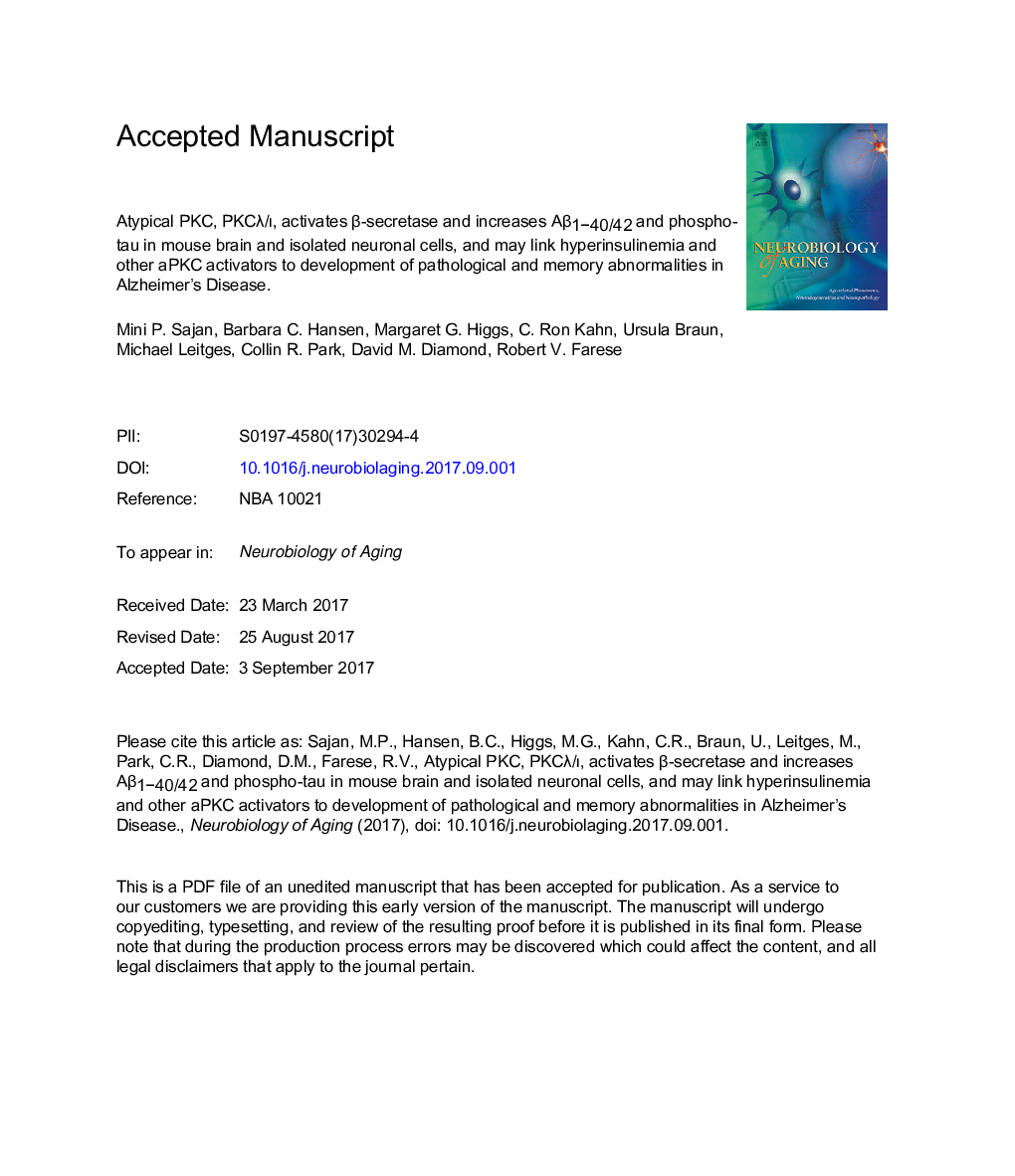| کد مقاله | کد نشریه | سال انتشار | مقاله انگلیسی | نسخه تمام متن |
|---|---|---|---|---|
| 6803213 | 1433523 | 2018 | 40 صفحه PDF | دانلود رایگان |
عنوان انگلیسی مقاله ISI
Atypical PKC, PKCλ/ι, activates β-secretase and increases Aβ1-40/42 and phospho-tau in mouse brain and isolated neuronal cells, and may link hyperinsulinemia and other aPKC activators to development of pathological and memory abnormalities in Alzheime
دانلود مقاله + سفارش ترجمه
دانلود مقاله ISI انگلیسی
رایگان برای ایرانیان
کلمات کلیدی
موضوعات مرتبط
علوم زیستی و بیوفناوری
بیوشیمی، ژنتیک و زیست شناسی مولکولی
سالمندی
پیش نمایش صفحه اول مقاله

چکیده انگلیسی
Schematic of pathogenesis of neuronal signaling abnormalities in insulin-resistant states that lead to production of factors that may abet development of Alzheimer's disease. In this scheme, diet-induced increases in hepatic aPKC activity lead to impaired Akt activation by insulin, that is, hepatic insulin resistance (IR), increases in hepatic gluconeogenesis, systemic IR, and hyperinsulinemia, which persistently hyperactivates brain Akt and aPKC. Increases in brain Akt activity lead to phosphorylation and thus diminished activities of all FoxOs (1/3a/4/6) and decreased activity and expression of PGC-1α (all needed for neuronal function and integrity). Increases in brain aPKC activity, either directly or indirectly, provoke increases in β-secretase activity, and levels of Aβ1-40/42 and phospho-thr-231-tau, and thus abet plaque and tangle development.178
ناشر
Database: Elsevier - ScienceDirect (ساینس دایرکت)
Journal: Neurobiology of Aging - Volume 61, January 2018, Pages 225-237
Journal: Neurobiology of Aging - Volume 61, January 2018, Pages 225-237
نویسندگان
Mini P. Sajan, Barbara C. Hansen, Margaret G. Higgs, C. Ron Kahn, Ursula Braun, Michael Leitges, Collin R. Park, David M. Diamond, Robert V. Farese,